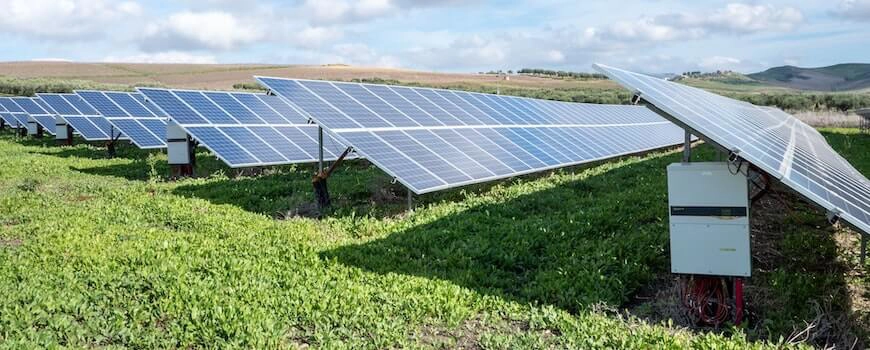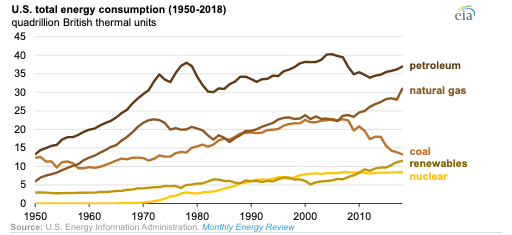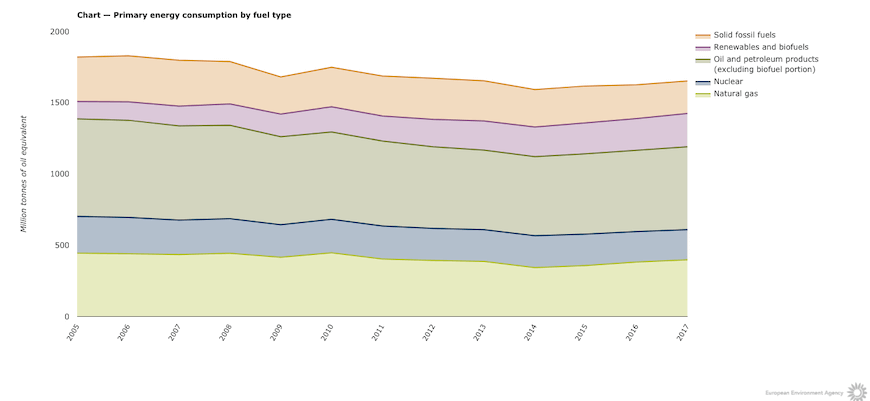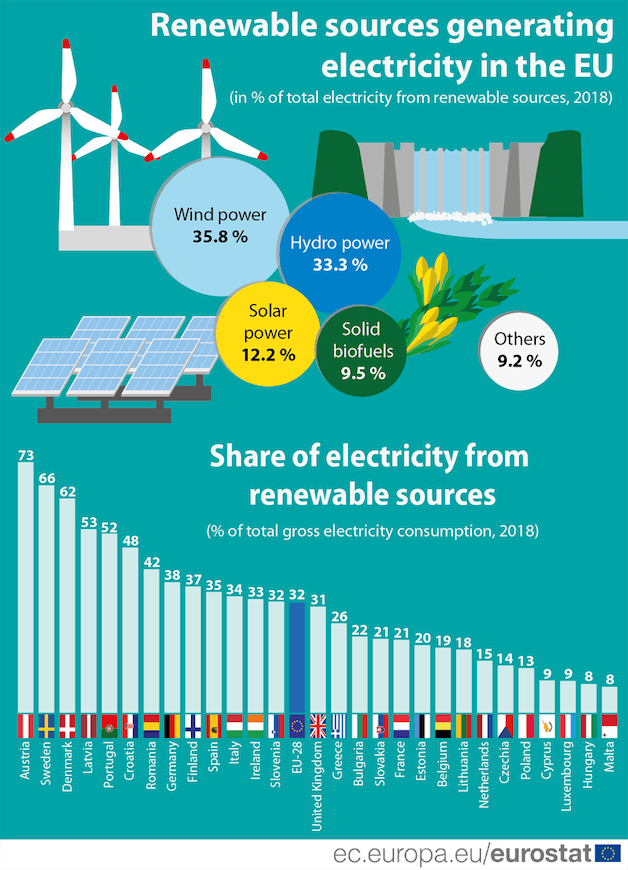
In people’s minds, renewable energy is good, while fossil fuels are bad. But the picture is much more nuanced than that.
To illustrate this, let’s look at the following solar energy vs fossil fuels statistics. The U.S. energy consumption – which is the biggest energy consumer of the world – looks like this (according to the U.S. Energy Information Administration):
p
Meanwhile, in the EU it looks like this (according to the European Environment Agency):

Renewable energy sources are constantly growing, which is a widely known fact. It is not a surprise, because in terms of solar energy if 1 hour of sunshine reaches the earth, it provides more energy than humanity consumes in 1 year. And the sun will always shine.
However, it is an interesting and lesser-known fact that the growth of natural gas is well ahead of renewables. Why?
To find out, we must first compare them. In this article, we try to get an answer to the following questions: which one is better, fossil fuels or renewable energy? How efficient is solar energy compared to fossil fuels? Can solar energy replace fossil fuels?
What are the most commonly used fossil fuels & renewable energy sources?
Before looking at the details, we should clarify what renewable energy sources are. The list goes like this:
- Solar
- Wind
- Geothermal
- Biomass
- Low-impact hydroelectricity
Fossil fuels are:
- Coal
- Petroleum
- Natural gas
Let us begin with renewable energy, and most importantly, solar power.
Solar energy vs fossil fuels
Most people think that the most common source of renewable energy is solar energy, but this is not true.
Here is a detailed view in the EU (from Eurostat):

Wind energy accounts for more than 1/3 of renewable energy sources, which is three times more than for solar energy. However, the difference is constantly decreasing at a rapid pace. This is why everyone identifies renewables with solar energy.
And as we said earlier, in people’s minds renewable energy is good, while fossil fuels are bad. Why?
Fossil fuels vs renewable energy
There are a lot of pros and cons of renewable energy and fossil fuels, too. Both have a huge impact on the environment, on the energy sector, on everyday life – and the future of humanity.
Alternative energy will never run out, meanwhile, fossil fuels will. While fossil fuels will run out in 50 years, renewable energy is here and will never run out. Ever.
But fossil fuels are very easy to store, which unfortunately cannot be said of renewable energy sources. Nowadays there are some alternative energy storage technologies, but they are still in their infancy. They are not efficient enough – yet. And it is even worse if we think of large-scale plants.
And although renewables will never run out, they are unfortunately not available continuously. When the weather is cloudy, solar panels are not efficient enough. If the wind is not blowing, the wind turbines will not rotate.
But – most importantly– renewable energy is clean, which means that it does not pollute the environment. If we want humanity to survive longer than non-renewable energy sources, then we certainly need to stop pollution and global warming.
The difference is even greater if we look at the pollution of coal vs solar energy. Coal is the most polluting fossil fuel on Earth, meanwhile, solar energy is not polluting at all.
However, these arguments do not yet explain why the use of natural gas is increasing much more than solar energy. Here comes the biggest difference of all: the price.
Cost of renewable energy vs fossil fuels
Because renewable energy is in its infancy, it is expensive. New, pioneer technology at first is always expensive, but with its constant spread, it is becoming cheaper and cheaper.
That happened with natural gas. It is not a new technology, so it is much more efficient, easier to store, and our distribution system is much more developed. If we cannot deliver it through international pipelines, we can liquify it (LNG) to be shipped with tankers.
And most fossil fuels have changed a lot recently because, in the 19th century, natural gas was primarily used to power lights – in buildings and on the streets. Today, technology has expanded the uses of natural gas so much that we can use it for almost anything.
The results? It is much cheaper both for the commercial and residential sectors than renewable energy.
Nevertheless, the future belongs to alternative energy sources. Fossil fuels are cheap, easy to store and to ship, but it is bad for the environment, and eventually will run out.
Conclusion — can renewable energy sources replace fossil fuels?
Yes, it can – and it should. Fossil fuels will run out, but we have long decades before it will happen.
Solar and other renewable energy sources are in their infancy, so we will know a lot more about them by the end of this period, and it will be much easier, cheaper and much more effective to use them in the future.
So the question is not “can solar energy replace fossil fuels?”, but when will solar energy replace fossil fuels?
